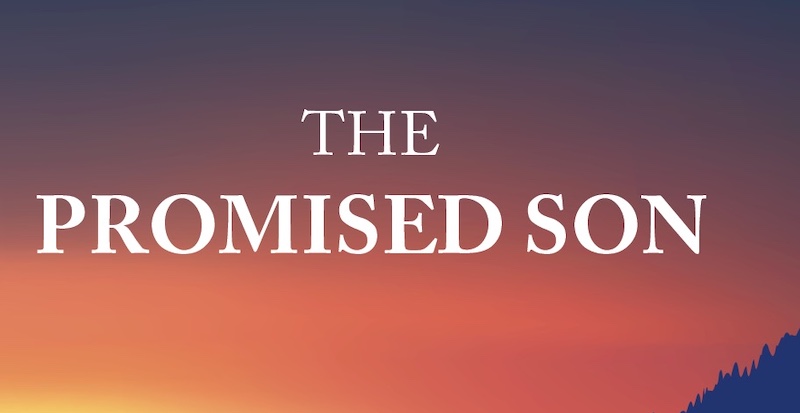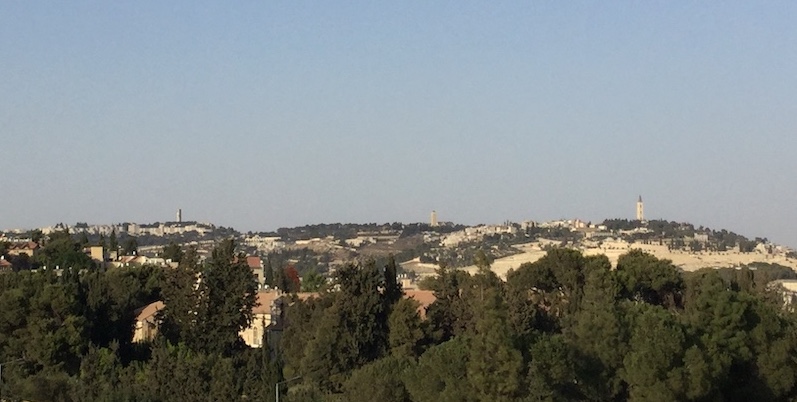We are living in challenging days. The impact of Covid-19 during 2020 has been devastating and has affected all countries of the world, millions of families, various communities of faith, and global economics right down to you and me. Many wonder if we are living in the “Last Days.” Maybe we are. One thing is for sure, we are closer to the Last Days now than ever before.
The Last Days
The Bible has much to say about the Last Days including the final seven years when an antichrist will arise to establish a peace treaty and then break this agreement in the middle of the seven years with the final three and a half years being defined as a time of great tribulation on the earth.
At the end of this seven-year period the Messiah will Return: bringing judgment to His enemies while bringing salvation to His followers. For those of us who believe in God’s word, there is a hope and a future, however, the Bible warns us that in the Last Days there will be those who mock the promise of God:
Know this first of all, that in the last days mockers will come with their mocking, following after their own lusts, and saying, “Where is the promise of His coming? For ever since the fathers fell asleep, all things continue just as they were from the beginning of creation.” For when they maintain this, it escapes their notice that by the word of God the heavens existed long ago and the earth was formed out of water and by water, through which the world at that time was destroyed by being flooded with water. But by His word the present heavens and earth are being reserved for fire, kept for the day of judgment and destruction of ungodly people. – 2 Peter 3:3-4
The promise of the coming of the Messiah and the expectation of judgment on this earth affect how we live today. Those who doubt God’s word will mock the promises outlined in the Bible while those who believe God’s promises will continue in faith. How can we be sure that God’s word will be fulfilled as recorded in the Bible? What hope do we have that Yeshua will return just as He said that He will?

“And God Appeared…”
This week’s Torah Portion continues to trace the life of Abraham with a focus on Genesis chapters 18-22. In this portion of Scripture we see an amazing foreshadowing of the life of the Messiah and the faithfulness of God to fulfill His promises. We begin in Genesis chapter eighteen when God again revealed Himself to Abraham:
Now the LORD appeared to Abraham by the oaks of Mamre, while he was sitting at the tent door in the heat of the day. – Gen. 18:1
The first word in this verse in Hebrew is וירא – VaYerah and is translated into English as “Now the LORD appeared…” The LORD appeared several times to Abraham, however, this time was unique as we read in the verses that follow explaining how the LORD together with two angels actually ate a meal which Abraham and Sarah prepared for them.
The Promised Son
After the meal, the LORD and his angels delivered a message to Abraham that his wife Sarah would bear him a son in one year’s time:
Then they said to him, “Where is your wife Sarah?” And he said, “There, in the tent.” He said, “I will certainly return to you at this time next year; and behold, your wife Sarah will have a son.” And Sarah was listening at the tent door, which was behind him. Now Abraham and Sarah were old, advanced in age; Sarah was past childbearing. – Gen. 18:9-11
We are all familiar with the extraordinary story of Abraham and Sarah. God took one man of faith together with his wife and did the impossible through them. After the LORD led them to the Promised Land and gave them great wealth, protection, and favor wherever they went, the LORD told them that Sarah would bear Abraham a son, despite her being beyond the years to bear children.
God had previously told Abraham that Sarah would bear him a son and that God’s blessing would be on the one who comes from her womb and He also promised that nations and kings of peoples would come forth from her (Gen. 17:16). God had a special plan for this child to be born to Sarah and Abraham and God fulfilled His word to them:
Then the LORD took note of Sarah as He had said, and the LORD did for Sarah as He had promised. So Sarah conceived and bore a son to Abraham in his old age, at the appointed time of which God had spoken to him. Abraham named his son who was born to him, the son whom Sarah bore to him, Isaac. – Gen. 21:1-3
Abraham and Sarah experienced a tremendous joy in life when they became parents at an age when they could have been grandparents or even great-grandparents, however, all was fulfilled in God’s perfect timing.

From Life to Death & Back Again
We do not know exactly when it happened but some years later, when Isaac was a youth, the LORD tested Abraham and told him to do the unthinkable to his own son, to offer him up as a burnt offering to the LORD:
Now it came about after these things, that God tested Abraham, and said to him, “Abraham!” And he said, “Here I am.” Then He said, “Take now your son, your only son, whom you love, Isaac, and go to the land of Moriah, and offer him there as a burnt offering on one of the mountains of which I will tell you.” – Gen. 22:1-2
There must have been a million questions flying through the mind of Abraham at that moment and in those days leading up to the ascent of Mount Moriah. Why would God give a son to Abraham only to ask him to offer him up as a burnt offering, a sacrifice? All we know is that Abraham obeyed the word of the LORD to him:
So Abraham got up early in the morning and saddled his donkey, and took two of his young men with him and his son Isaac; and he split wood for the burnt offering, and set out and went to the place of which God had told him. – Gen. 22:3
Abraham wasted no time but immediately set out early the next morning with everything needed to obey the word of the LORD, including taking his beloved son Isaac with him for the journey.
Again, we are all familiar with this story and we know that God stopped Abraham from actually offering his son on the altar, although Abraham was ready to follow through according to the word of the LORD:
But the angel of the LORD called to him from heaven and said, “Abraham, Abraham!” And he said, “Here I am.” He said, “Do not reach out your hand against the boy, and do not do anything to him; for now I know that you fear God, since you have not withheld your son, your only son, from Me.” – Gen. 22:11-12
It was a test that none of us would ever want to experience. In fact, it is such a powerful and amazing testimony of devotion to the LORD that Genesis 22 is included in the morning prayers in the Siddur (the Jewish prayer book). Morning by morning religious Jews recall the faith and dedication of Abraham as well as the trust and devotion of Isaac in their extraordinary love for God which was demonstrated by both father and son.
The Faith of Abraham
In the New Testament Abraham is often noted for his faith and is used as the gold standard of what it means to believe in the word of the LORD. In reference to his being tested to offer up Isaac, Abraham is credited with believing God’s power to raise the dead to life:
By faith Abraham, when he was tested, offered up Isaac, and the one who had received the promises was offering up his only son; it was he to whom it was said, “Through Isaac your descendants shall be named.” He considered that God is able to raise people even from the dead, from which he also received him back as a type. – Hebrews 11:17-19
Abraham knew that God was able to do the impossible and trusted Him with the future of his son Isaac, even if it meant bringing him back from the dead. The account of Abraham and Isaac on Mount Moriah is a foreshadowing of what would happen to the Son of God 2000 years after Abraham and Isaac.
Resurrection & Beyond
In many ways the life of Yeshua as the Son of God parallels the life of Isaac as the son of Abraham. We can see the following parallels in their lives through this brief list:
-
- They were both considered to be a son of promise
- They both came into the world in miraculous ways
- Both Isaac and Yeshua are considered the promised seed of Abraham (Isaac was the literal seed of Abraham while Yeshua came into the world through Mary [a descendant of Abraham] by the seed that was miraculously planted in her through the Holy Spirit)
- They were both beloved sons of their respective fathers and considered unique, only begotten sons
- They were both to be offered up as a sacrifice (Isaac’s Mount Moriah experience foreshadowed the ultimate sacrifice of Yeshua)
- They were both raised up from the dead (Isaac metaphorically and Yeshua literally)
The lives of Abraham and Isaac give us a picture of the unity of a father and a son with a special calling on the life of the son to become an offering to God.
The faithfulness of God to fulfill His promises through Abraham and Isaac should encourage our faith. God keeps His promises and fulfills every word that He speaks. There is one more parallel from the story of Abraham and Isaac on Mount Moriah in Genesis 22 that we see fulfilled in the life of Yeshua and, at the same time, it is still to be fulfilled in its entirety.
The LORD On The Mountain
After the LORD stopped Abraham from slaying Isaac, Abraham found a ram on the mountain and offered it on the altar in place of his son Isaac. At that time, Abraham declared a name over that place in light of all of the events that transpired that day:
And Abraham named that place The LORD Will See, as it is said to this day, “On the mountain the LORD will be seen.” – Gen. 22:14
Many English translations use the phrase “Adonai will provide” or “Jehovah Jireh…” These are both poor and misleading translations or transliterations. The literal translation of the Hebrew יהוה יראה – Adonai Yireh, is “The LORD will see…” Most Bibles annotate the accurate translation “will see” in place of “will provide”.
There is much speculation as to why Abraham named that place יהוה יראה – Adonai Yireh – The LORD will see, with the common name being בהר יהוה יראה – BeHar Adonai Yera’eh – On the mountain the LORD will be seen. God did show up on the mountain that day and He did stop Abraham from offering his son on the altar but there is also a clear prophetic element in these Hebrew phrases that points to something in the future.
Adonai Yera’eh – The LORD Will Be Seen
The traditional Jewish understanding of these unique Hebrew phrases is that God foresaw the place of the future Temple, which we know was in this location (2 Chronicles 3:1-2). We also know that God answered King David and King Solomon with fire when they offered sacrifices on the altar at this same location (1 Chronicles 21:26) and that God’s presence filled the Temple after Solomon dedicated it to the LORD (2 Chronicles 7:1-3). In all of these various ways the LORD appeared on this very mountain.
If it were not enough for the LORD to reveal His presence on Mount Moriah in these various ways as noted above, we also know that the LORD Himself appeared on this mountain through His Son, Yeshua. Yeshua was brought to the Temple as a baby (Luke 2:21-38) and frequented the Temple throughout His years on the earth as detailed in the New Testament and prophesied in the Old Testament (Malachi 3:1). The LORD was literally seen on the mountain in the very person of Yeshua!
Promises Made, Promises Kept
The faithfulness of God to Abraham and Isaac should strengthen our faith. The foreshadowing of the life of Yeshua through the life of Isaac is a testimony to God’s amazing word. The accuracy with which God fulfilled the prophecy of Abraham by being seen on the mountain in various ways, including through the life of Yeshua, reminds us that God is faithful in the details of His word. Beyond all of this, we also read in the Bible that God will fulfill this prophecy from Genesis 22:14 at least one more time.

The Mount of Olives
When the LORD comes again in the person of Yeshua, He will set His feet on another mountain just across the valley from Mount Moriah. We read about this prophecy in the book of Zechariah:
Then the LORD will go forth and fight against those nations, as when He fights on a day of battle. On that day His feet will stand on the Mount of Olives, which is in front of Jerusalem on the east; and the Mount of Olives will be split in its middle from east to west forming a very large valley. Half of the mountain will move toward the north, and the other half toward the south. – Zechariah 14:3-4
When Yeshua returns to this earth His feet will stand on the Mount of Olives. He will fight against all of those who oppose Him while bringing salvation to His saints.
The Promise of Yeshua’s Return
We also read in the New Testament that it was from The Mount of Olives that Yeshua ascended into heaven and that He will return to this mountain in the same way that He left it:
And after He had said these things, He was lifted up while they were watching, and a cloud took Him up, out of their sight. And as they were gazing intently into the sky while He was going, then behold, two men in white clothing stood beside them, and they said, “Men of Galilee, why do you stand looking into the sky? This Yeshua, who has been taken up from you into heaven, will come in the same way as you have watched Him go into heaven.” Then they returned to Jerusalem from the mountain called Olivet, which is near Jerusalem, a Sabbath day’s journey away. – Acts 1:9-12
Just as Yeshua ascended from The Mount of Olives on the clouds into heaven, even so He will return with the clouds one day soon. And when He returns, He will stand on The Mount of Olives and every eye will see Him.
The LORD Will Be Seen On The Mountain
Whatever difficulties this past year (2020) has brought into our lives and whatever challenges we may be facing today, let us fix our hope on the God of Abraham, Isaac, and Jacob. God sees us and He knows our needs. He has been faithful to watch over His word for these many thousands of years and He will certainly see His word through until the end. The day will come when the LORD will be seen on the mountain once again!
Shabbat Shalom!
If you enjoyed reading this article, share it today with friends! We also invite you to sign up for our weekly Torah Portion commentary on the sidebar to the right.
Help keep our weekly commentaries free and available to all. Click here to donate today:
*All Scripture take from NASB Copyright © 1960, 1962, 1963, 1968, 1971, 1972, 1973, 1975, 1977, 1995 by The Lockman Foundation
**The Hebrew name “Yeshua” is used in the biblical quotations in place of the English name “Jesus” to give emphasis to the meaning of this name, salvation. The word “Messiah” is also used in place of the word “Christ” to bring clarity to the office of Yeshua.


